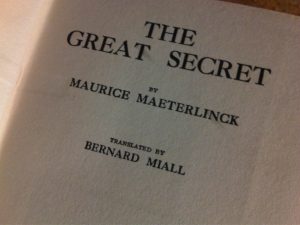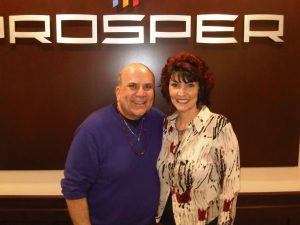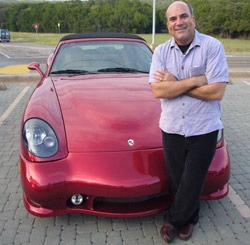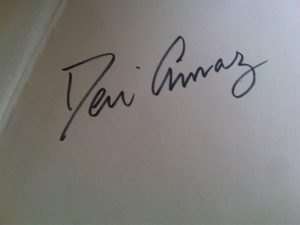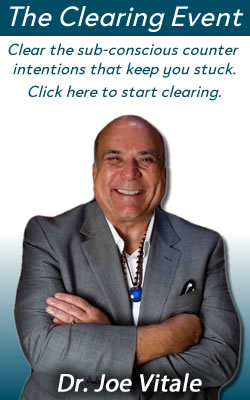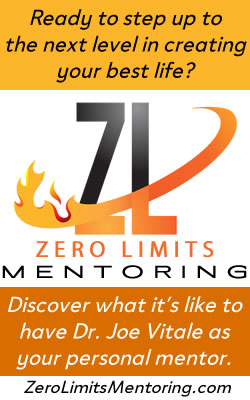Tag: Books
Eye of the Needle, or, The Shocking Spiritual Truth About Money
Warning: The following may be controversial and confrontational. I’m doing my best to help you prosper during perceived tough times. I’m getting “in your face” so you can shake off limiting beliefs, drop the excuses, and begin to help yourself and others. May the following inspire you to do just that.
Often people have trouble attracting money because they unconsciously believe it’s evil. You wouldn’t want to attract anything you thought was evil, would you?
But is money really evil?
Ben Witherington writes in his book, Jesus and Money:
“Money in itself is just a means of exchange. It is no more inherently evil than any other material thing God created.”
Actually, the quote about money being evil is a partial one from Paul, not Jesus. Paul wasn’t enlightened but wisely warned about the love of money potentially being a problem.
I totally agree. Loving money over life itself could take you from the essence of life, not toward it. As I explained in my book, Attract Money Now, the wealthy people I know don’t love money. They appreciate it and leverage it, but they’re not in love with it. Big difference.
What about the story where Jesus said, “A rich man can’t get into heaven”?
It’s a misquote. Jesus said it would be difficult for a rich man to get in, not that he “can’t” get in.
And why difficult?
It’s difficult to get through the eye of a needle when you’re carrying a lot of stuff.
As I’ve taught, it’s fine to have material things — the material is the concrete form of the spiritual — it’s just not so fine to be attached to them. If your happiness is dependent on them, then you’re missing the miracle of this very moment.
What really matters is what is in your heart concerning money. If it’s your be-all and end-all, then money is your God and that, from a Jesus/Paul viewpoint, is a no-no. But if money is neutral to you, just a means to an end, then you are probably pure in heart concerning it. Godspeed to you.
What I do is appreciate money and use it to express my inspirations and Divinity. Money is just a cool agreed-upon tool to get things done. With it I can help myself, family and friends, and distribute it to causes and people I believe in. I do all that and more. It’s about being at peace with money.
I love Arnold Patent’s quote, in his book, Money:
“The sole purpose of money is to express appreciation.”
When you realize that money is neutral, that you can use it with a heart full of love, and you can be a steward for it to see that the Divine is expressed through you, then you are clear to attract all the money you will allow.
Mother Teresa said —
“Money will come if we seek first the Kingdom of God – the rest will be given.”
What is this “Kingdom of God”?
Religious wars have been fought over the answers. For me, it’s following your Divine connection; the voice in your heart that whispers what It wants you to do next. When you follow It, you move in the direction of experiencing and creating this Kingdom right here, right now.
What’s worth remembering is you can’t tell what is Divinely guided in another person any more than they can tell what is Divinely guided within you.
- Jay Leno and his car collection might be Divinely guided. I can’t honestly say. Neither can you.
- Bill Gates and his fortune might be there because he followed Divine guidance. We have no way of knowing.
- Jimmie Vaughan has 200 guitars. Not inspired collecting? How would you know?
- Donald Trump might be following his own spiritual path. Who’s to say, unless you project your own idea of wealth and spirituality onto him, and then who’s to say you’re right?
You’re on an ego trip if you feel you can determine someone’s motivation. We have to focus on our own connection and actions and refrain from judgments.
Scot Anderson, in his book, God Wants You Rich, says –
“What did Jesus say when someone was dumping perfume on His feet that was worth one year’s salary — in today’s numbers more than $40,000 — and someone said it should be given to the poor? Jesus said, ‘The poor you will have with you always’.”
Anderson goes on to say, “…Get out of your holier-than-thou attitude. Stop judging others and live your own life.”
That may sound harsh, but maybe it’s time to be more direct.
Buddha had his own thoughts on money, of course. According to The Buddha’s Teachings on Prosperity: At Home, At Work, in the World by Bhikkhu Basnagoda Rahula —
“The Buddha never imposed limitations on his lay follower’s efforts to be successful; instead, he clearly encouraged them to strive for success. Whether in “trading, cattle farming, archery, government service, or any other profession or industry,” a layperson should strive to advance in his or her respective field. Notably, the motivation to achieve success is an important requirement in any person’s life — an attitude of “I have a job that’s enough for me to live on” has no place in the Buddha’s teaching.
Next, the Buddha set no limits to a layperson’s wealth and never told his prosperous lay followers to stop or slow down. Instead, he unequivocally encouraged them to plan, organize, and even to obtain more…”
Buddha encouraged attracting more?
Jesus didn’t think money was evil?
The sole purpose of money is to express appreciation?
Pretty eye-opening, isn’t it?
Given these insights, how do you feel about money now?
Whether you think money is spiritual or not doesn’t matter when you need it in today’s world to survive and thrive. You best make peace with it. If you want to help yourself and others, you best clean up your attitude toward wealth.
But how?
I’ve created entire books and courses to help you get clear and then attract money to use for your own Divinely guided actions. Some of them, such as Attract Money Now, are free.
Have you read the book? If not, why not? If so, did you apply the seven steps in it? If not, why not?
Too many people have shrugged off the pursuit of money saying it was evil or material, or that Jesus or Buddha wouldn’t use or acquire or accumulate money today.
Come on. Obviously, that’s not true. They wouldn’t be attached to money, but they’d certainly attract it and leverage it for good.
And who’s good would they use it for?
Their choice.
Meaning they wouldn’t listen to you, but to their own inner direction. You might not even agree with how they handled their wealth. You might even be surprised and confused by it. You might even think they were greedy.
Do you think your opinion would stop them?
Hardly.
They’d adapt to modern times, too.
Do you really think they’d ride in an ox cart today? Not fly in an airplane to get overseas? Not have a bank account — or entrust someone to have one for them? Not do marketing to get the word out?
When I wrote my dissertation to earn one of my doctorate degrees, it was on the marketing methods every great religion and metaphysical movement did to attract followers. They all used money and marketing to spread the good word of their ideas. All of them.
Apparently their leaders were just fine with money.
But let’s dig below the surface of all this:
Why do you even care what anyone does with their money? Or what Buddha or Jesus thought about wealth?
Sometimes people use not having money as an excuse for not following inspirations.
I’m sorry, but excuses are no longer allowed.
It’s time to awaken.
You have a job to do here. I don’t know what it is. You do.
Dr. Kalinda Rose Stevenson, in her very enlightening e-book, Going Broke With Jesus, says —
“When you have money, you have the power to have a greater impact in the world. Most of us are used to playing small roles, partly because we don’t have enough money.”
John Kay, in his book, Obliquity, pointed out that the wealthiest people – from Andrew Carnegie to Bill Gates – achieved their riches through a passion for their work, not because they set materialistic goals.
Passion.
That’s the real ticket to success and the real thing to focus on.
Don’t let lack of money or time or energy or experience or education stop you. Far too many people with less than you have created their dreams.
Focus on your passion.
Don’t let opinions about what Jesus or Buddha would think or do stop you from following your own inspirations. That’s a cop-out.
Focus on your passion.
Don’t let religious bullies or well-meaning interpreters of ancient spiritual literature distort your perception of the world and what’s possible for you.
Focus on your passion.
It’s time to act.
Will you?
Ao Akua,
PS — Let me be even more in your face: Stop judging people with money and how they use it. How does that serve you, except to make you feel self-righteous? Start attracting money and using it for the good you see will help the most. If you want to make a difference, make a difference. It begins with you. Will you sit on the sidelines and judge or will you enter the game and be part of the solution? Will you follow your passion or not? The whistle has blown. The game is on. The clock is ticking. Get on the field and play. Now.
How Much Is Enough?
For almost a year I held phone masterminds (at no pay to me) with a client. It was a win-win because we supported each other in our quest to be the best – or so I thought.
We “Nevillized” our goals.
We “What If Upped” our intentions.
We “remembered” our successes.
It was thrilling, energizing, exhilarating and wonderful.
But one day I told my client that I received another standing ovation at a recent talk. I was sharing my success with someone who I thought would be inspired by it.
He was silent.
I later learned he felt sick.
When I explored why, he said my success made him ill.
“How much is enough?” he asked.
Think about this…
As long as we talked about an imaginary success, it was fine. But when I reported an actual success, it wasn’t fine.
What’s the difference?
In my experience, it’s often safe to imagine what you want but not safe to actually manifest it. Obviously, there’s a deservingness issue there.
When success is out of arm’s reach, it’s fair to fantasy having it; but grasp it and now it’s real.
Do you accept it or push it away?
It depends on your comfort level with success.
And how much is enough, anyway?
At what point is success “too much”?
Who says a certain level of success is acceptable but more isn’t?
I’ve been saying for decades that you can have virtually whatever you want as long as you don’t need it. If you need something, there’s never enough. If you’re satisfied with this moment and just welcome more, than “enough” isn’t even an issue. You just enjoy life. You accept more because it’s joyful to do so.
And looking at this issue even deeper, doesn’t concern over “too much” reveal a belief in scarcity?
As I explained in my bestselling audio program The Abundance Paradigm, your perception creates your reality. You can look at life and see scarcity or abundance. It depends on your mindset.
Someone who thinks it’s possible to have “too much” success is coming from the scarcity mindset. That’s fine if that’s what you choose. Most of us don’t consciously choose it, though. And once you realize you have a choice, why would you choose scarcity over abundance?
How good can you stand it, anyway?
My client who confronted me about “How much is enough?” when I mentioned my standing ovation, was pulling back from his own potential success. Self-sabotage stopped him. He hit his comfort zone of deservingness.
Decades ago I was taught to be inspired by someone’s success, not jealous of it.
When I was broke and struggling, I learned to see someone driving the nice car or living in the nice house and feel proud of them and inspired by them. It made a huge difference in how I felt about myself, and released energy that I could use to build my own dreams. Today my success is real.
The lesson here is to go for your inspired dreams without reservation or explanation, surround yourself with supportive people who truly want your success as much as you do, and enjoy your adventure forward as every moment is the miracle you seek.
Steve Jobs said —
“Don’t let the noise of others’ opinions drown out your own inner voice. And most important, have the courage to follow your heart and intuition.” – Steve Jobs
There’s no such thing as a ceiling on good, happiness, deservingness or “enough.”
Unless you think there is.
What do you think?
How much do you deserve?
How much is enough for you?
Ao Akua,
PS – I am loving the bubbly music of singer Jem (Jemma Griffiths). Here’s her video for her song It’s Amazing (on her latest CD, Down To Earth), which is a great reminder of all that you can do in your life. Life is amazing. You are amazing. Enjoy.
Attracting Spirituality
On a recent private call for students in my Miracles Coaching program, someone asked me how I achieved my level of spirituality and what they could do to attract it, too. I reflected on the flattering question and came up with the following:
1. Reading.
I’ve been a bookaholic since I was a teenager. Over the course of 57 years, I’ve read too many books to count. Not all were great. But numerous titles stand out as ones that influenced my spiritual thinking. Emerson and the Transcendentalists movement gave me a deep spiritual insight into the world back in the 1970s. The early Law of Attraction authors flipped me into the stage of empowerment, from William Walker Atkinson to Genevieve Behrend. Neville, of course, awakened me. So did Robert Collier. I’m a fan of everything by Byron Katie and David Hawkins. The Book of est nailed me, as did Why Is This Happening To Me…Again? I’d add listening to self-help audios also made a difference. Decades ago I drove around Houston, often unhappy and looking for work, listening to many programs from Nightingale-Conant. Today I’m published by them. I still read and listen. All of this education informed and inspired me, as well as made me more self-aware. I attribute this on-going study to my success today.
2. Meditation.
I’ve been doing some form of meditation virtually every day since 1980. At one point it was the Dynamic Meditations of Rajneesh; at another it was sitting in silence and focusing on breathing, or repeating a mantra. Later it was “intentional” meditation, where I visualized what I wanted to have or be. These days it’s usually ho’oponopono. Currently I’m experimenting with drumming as a way to clear and center. I think we need to do whatever it takes to connect to the Divine and hear Its whispered inspirations.
3. Coaching.
You might think I’m just trying to sell coaching, but the truth is my life didn’t skyrocket until I got a coach. An outside loving observer can help you see your limiting beliefs. It’s not likely you’ll see them on your own because your beliefs will appear as reality to you. It doesn’t have to be Miracles Coaching, but some form of coaching will help you move forward. There are many programs available. Miracles Coaching is just one.
No doubt there’s more to attracting spirituality, but the above have worked for me.
What has worked for you?
Ao Akua,
PS – I don’t know if this will help you attract wisdom or spirituality, but it’ll certainly move you: My first music CD, called Blue Healer, is ready. It contains five long tracks of what I call blues meets trance music, all designed to stir your energies and awaken your soul. More on it later, but for now go see The Blue Healer.
Free Ho'oponopono Training
Whenever I spend time with Dr. Hew Len, I’m reminded of the fundamentals behind Zero Limits and the Hawaiian healing system called ho’oponopono:
There’s nothing to do but clean (i.e., release programs in the mind).
The more you clean, the more you can receive inspiration from the Divine.
You act from Memory or Inspiration, and usually it’s Memory (data).
The only thing to clean is what you feel inside; you’re clearing perception.
The only goal is freedom; to be at Zero.
Knowing the fundamentals is one thing, living them is quite another. This is why we sometimes need books, audios, DVDs, tools, seminars, coaches, and whatever else we can use to remind us that all the work takes place within.
This is why I’m excited to report that today you can have a free online training in ho’oponopono, taught by Dr. Hew Len and myself, by going to-
http://www.zerolimitsonline.com/free-hooponopono-training-lesson-1
The world is made up of “data” and it’s this very data that needs cleaned. The thing is, we perceive all that data as being outside of us, when in reality it’s inside us, so that’s where the cleaning has to take place.
In other words, there’s nothing “out there.” It’s all inside you. That’s where you experience problems and that’s where the cleaning needs done.
Dr. Hew Len often asks, “Have you ever noticed that when you have a problem, you are there?”
Think about that.
“Complete responsibility means accepting it all – even the people who enter your life and their problems, because their problems are your problems. They are in your life, and if you take full responsibility for your life, then you have to take full responsibility for what they are experiencing, too.” – from Zero Limits by Joe Vitale and Dr. Hew Len
But what is the right way to clean?
If cleaning is the number one most important thing to do and is the core of the entire Zero Limits and ho’oponopono process, how do you do it accurately?
Here’s how I do it:
I notice something I consider wrong. This can be triggered by a thought, another person, an event, or anything else. This is the stimulus. Before Zero Limits, noticing a problem was always considered “out there.” After Zero Limits, you realize the problem is inside. It’s actually a problem in perception. Whatever the case, the first step is to notice you don’t feel good. You’re angry, upset, worried, scared, or any other of a wide range of emotions and feelings that could be labeled as unhappy.
I start to clean on the feeling. I don’t clean on the other person, or the thought, or the situation, or anything “out there.” Again, the problem is inside. I’m the one aware of a problem. I’m the one who has to clean it. For me, saying “I love you”, “I’m sorry”, “Please forgive me” and “Thank you” is the way to clean. I say the phrases in any order. I say them non-stop in my mind while feeling the problem as I perceive it. And I say it to the Divine.
I sometimes use other cleaning methods. For example, the last time I saw Dr. Hew Len, he told me my own business card (the one with my red Panoz car on it called Francine) is a cleaning tool. He said, “In your mind imagine slicing the problem up with the edge of the card.”
I let go of need, addiction or attachment and wait to be prompted to take inspired action. Dr. Hew Len once told me that he cleans on a decision three times. If the answer is the same after those cleanings, he takes action on it. This means if I get an impulse to do something to resolve the perceived problem, I might clean on it three times before I actually take any action. This is a way to insure the action is coming from inspiration and not memory.
Repeat as needed.
Everyone wants a short-cut to cleaning and reaching Zero. I do, too.
But it’s that very impatience that needs cleaned. Wanting something right now is Memory playing out, urging us to get instant gratification. It’s data. The Divine has no sense of time and no urgency. Wanting things to unfold faster than they unfold is a wonderful opportunity to clean.
I keep cleaning because it makes me feel lighter, happier and healthier; it is a fast-track way for me to remove the data in my being so I can get closer to the Divine; and because it’s easy, effortless, and free.
Until the Divine gives me another way to clean, I’ll keep on cleaning.
Ao Akua,
Joe
PS – Remember, today’s free training in ho’oponopono, taught by me and Dr. Hew Len, is at
http://www.zerolimitsonline.com/free-hooponopono-training-lesson-1
"A Book" Lesson
I just completed reading the 1976 autobiography of Desi Arnaz, the late Cuban-born musician who married Lucille Ball and together created the legendary TV show, I Love You.
I love simple titles. His book is called A Book. It’s a joy to read. Desi was a riveting storyteller. He was smart, talented, persistent, creative, charming, and driven. He and Lucy became the most beloved television couple in history, as well as one of the wealthiest.
But he also went through hell before he ever arrived at success. As with most “overnight” successes, his career took decades to develop into something worth writing about.
What stood out for me in A Book is a lesson Desi learned from his father in Cuba. His father was mayor of Santiago. He was popular and successful. He owned land, businesses, and resort property. His father taught, “There is always a way.”
No matter what the challenge, problem, or circumstance, “There is always a way” to resolve it.
Desi saw this belief in action as a child. When the revolutionaries entered Cuba in the early 1930s, they burned down his family home, destroyed his crops, killed his animals, ran off his mother and family, and put his father in jail.
They went from a life of luxury to being homeless and penniless. They later escaped that country, went to Miami, and started a new life — with nothing at all.
But the belief, “There is always a way” kept them going.
Desi struggled, but kept working; kept taking action.
When opportunities came his way, he took them, even when he didn’t have the skills or experience on hand to pull off the opportunity. He knew he could attract or develop the skills as they were needed.
When asked if he could act, when he had never acted at all, he said, “All my life!” He then learned acting, appearing in several movies and of course later on television.
“There is always a way.”
When he and Lucy found themselves with the opportunity to be involved in a new TV show, they needed to find actors, raise funds, develop new camera methods, use a live audience, build a set, and much more — all firsts at the time with no paths to show what to do, and all with little or no money to make anything happen, and all under a time crunch that would make most people faint — they knew “There is always a way.”
When Lucy was accused of being a communist in the 1950s, Desi put on his fighting gloves and destroyed the rumor. Front-page headlines vindicated the redhead. Desi said the only thing red about Lucy was her hair, and even that was false.
Desi knew, “There is always a way.”
Reading Desi’s book was a real treat. Not only because I always loved him as Ricky Ricardo on I Love Lucy, but also because “There is always a way” is one of my beliefs, too. It’s in my book The Attractor Factor. It’s one of the prime directives in my operating belief system.
You may not know how to do something, but by taking action and moving forward you can find it, create it or invent it.
“There is always a way.”
I recently tweeted a quote from Martin Luther King, Jr. that recaps this lesson from A Book:
“Faith is taking the first step even when you don’t see the whole staircase.” – Martin Luther King, Jr.
You don’t need to have all the answers to begin working toward making your dreams come true.
You don’t need to have all the money to begin working toward making your dreams come true.
You don’t need to have all the experience or education or much of anything else to begin working toward making your dreams come true.
You just need to take action right now — while believing, as Desi proved — “There is always a way.”
Ao Akua,
PS – Right after reading Desi’s book, I read Lucille Ball’s autobiography, published after her death, titled Love, Lucy. Her early life was no party. She, too, struggled. But her persistence, talent, and hard work ultimately paid off. You can learn more principles of attracting what you want through my Miracles Coaching program. Meanwhile, enjoy Desi Arnaz in his prime and try not to smile in this early video of him that breathes the fire of life:





